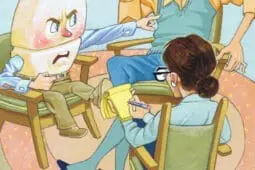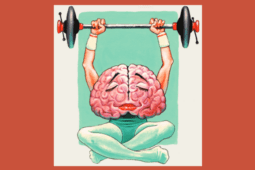Professional Development
Seven Myths about Meditation
A One-Size Approach Doesn’t Fit AllSeven myths about meditation for clinicians to ponder. Read more
The Power of Commitment
Mindfulness Is Only the BeginningFounder of Acceptance and Commitment Therapy Steven Hayes explains why mindfulness is only a beginning in the process of change. Read more
There’s been a decline in the public’s utilization of psychotherapy as a consequence of the rise of what might be called the Gang of Three: DSM, Big... Read more
The State of Our Art
Do Our Old Ways Fit the New Times?While the number of people in psychotherapy keeps declining, surveys reveal that potential clients would still rather talk to a therapist than fill a... Read more
It’s time we address the psychological toll of the daily bombardment of information that permeates our lives. Read more
To move forward, our profession needs a more consistent message about what we have to offer. Read more
Mary Pipher on Leaving Our Biases outside the Consulting Room
Finding Respect for All ClientsFrom the moment I met the Correys in my waiting room, I was baffled about why they were together. Frank was tall, good looking and suave; Donna dowdy and... Read more
The Anatomy of Procrastination
Helping the ADHD Client Make Changes StickClients with ADHD often know the coping skills that can improve their lives—the problem is applying them in daily life. Read more
Voices of Reason
Empowering clients to alter their internal experiencesThe case of a young man hearing voices shows how even problems that first appear to be extreme can be resolved by empowering clients to alter subtle aspects of... Read more
The Power of Small Changes
A Step-by-Step Approach to Treating Depression: An Interview with Judith BeckRelapse prevention begins in the first session, when we tell clients that we want to help them become their own therapists. Read more
The Power of How
Helping Depressed Clients Make Better Choices: An Interview with Michael YapkoOne of the most useful ways of understanding depression is the stress generation model, based on the idea that depressed people need better skills and... Read more
Enduring recovery from obsessive compulsive disorder means riding out the demands of an inner bully. Read more
Rediscovering the Myth
For John O'Donohue, Therapy Is a Journey into the Unknown SelfPoet John O'Donohue's introduction to the therapy field came through his unlikely friendship with neuropsychiatrist Daniel Siegel, known for his book The... Read more
VIDEO: Incorporating Energy Psychology in Your Practice
Getting Clients Comfortable with Energy PsychologyIt’s not within the standard protocol of talk therapy to tap on clients’ acupuncture points as they focus on a problem or goal. Even therapists convinced... Read more
The Power of the Pen in Therapy
Some Journaling Exercises to Enhance Your WorkSome guidelines for bringing the creative power of therapeutic journaling into your work. Read more
The Whole World Is Watching
Therapy and the TED Talk StageEarlier this year, therapist Michele Weiner-Davis spent hours in front of a camera, her husband patiently hitting the record button as she rehearsed for what... Read more
How to Make a Group Practice Work
The Challenge of Becoming the BossI’m finding myself unable to take on more clients due to a full schedule, but I still want to grow my practice and finances. Would starting a group practice... Read more
Beyond Chemistry
Exploring Our Relationship with Our MedsThe chemical effect of psychoactive meds is only part of their impact. In fact, people often develop complex relationships with the pills they take. Read more
The Anatomy of a Psychiatric Consult
Solving the PuzzleFor many therapists, an air of mystery surrounds the role of psychopharmacology in mental health treatment. Here's a step-by-step tour of the complexities of... Read more
The Meds of the Future
Waiting for the Next Magic PillDoes our growing understanding of the brain and the prospect of further scientific discoveries mean there’s a new generation of magical pills on the horizon? Read more
For therapists, giving a TED talk is the new professional milestone. Read more
The Challenge of Becoming the Boss
How to Make a Group Practice WorkMaking a group practice work means taking on the challenge of becoming a boss. Read more
VIDEO: Examining DSM-5's Most Controversial Change
Gary Greenberg on the Bereavement Exclusion“When DSM-III came out and the major depression diagnosis was created,” Gary tells us in this brief video clip, “it was immediately clear that many... Read more
VIDEO: The Increasing Role of Biology in the DSMs of Tomorrow
How Genetics Shape PsychopathologyRather than continuing to lament the deficiencies of DSM-5, forensic psychiatrist David Mays wants to focus on what's ahead for the psychotherapy field. In his... Read more
VIDEO: How to Install New Mental States
What Therapists Should Know about Brain ChangeUntil recently, the impact of brain science on the everyday work of most therapists has been pretty limited. According to Rick Hanson, that’s because we’ve... Read more
Becoming a Supershrink: Three Steps to Professional Excellence
Getting Client Feedback Isn’t Always Easy, But It's a Necessary StepMost therapists, when asked, report checking in routinely for client feedback and knowing when to do so. But research has found this to be far from true. Read more
VIDEO: How to Make Clients Feel Safe
Today's Video: Bringing Polyvagal Theory into Your PracticeHow can therapists acquire neuroscientific knowledge without becoming brain scientists themselves? Even more pressing, what real-life practical therapeutic... Read more
Why DSM-5 Is a Step Forward for Psychotherapy
Find Out About the Benefits of Dimensional DiagnosisIn this video clip, Regier talks about how the new definition of a major depressive disorder in DSM-5 better enables clinicians to diagnose clients who exhibit... Read more
Do Brain Games Build Cognitive Muscle?
Grim Job Prospects for Mental Health GradBrain games and grad prospects Read more
Outside the Box
Bringing Families into Trauma TreatmentIf we don’t open up the one-on-one therapeutic cloister, trauma sufferers may never learn how to engage in the give and take of real-life relationships. By... Read more


























